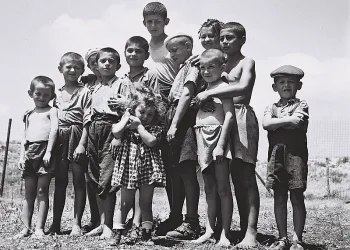Brussels is bracing for a critical day of foreign policy decisions as EU foreign ministers gather under growing geopolitical pressure.
Upon arrival at the Foreign Affairs Council, Estonia’s Prime Minister-turned-EU High Representative, Kaja Kallas, laid out the Council’s agenda in clear, resolute terms.
From pushing forward the 17th package of Russia sanctions to debating humanitarian access in Gaza, today’s discussions reflect Europe’s pressing need to balance diplomacy with firm action.
Ukraine Ceasefire: Pressure Mounts on Russia
Kallas reaffirmed the EU’s collective demand for a full and unconditional Ukraine ceasefire, noting Ukraine’s willingness over 60 days ago. In contrast, Russia’s continued resistance has triggered preparations for further measures.
“If Russia does not agree… we will put more pressure,” she stated, underlining the unified stance of all 27 EU member states.
Main Points:
-
Russia sanctions remain a core instrument, with economic pressure intensifying.
-
The EU is coordinating with the US to maintain a consistent approach.
-
Intelligence reports suggest Russia’s economy is weakening under the strain.
Overview of EU Priorities at Foreign Affairs Council
| Topic | Action Expected | Kaja Kallas’ Comment |
|---|---|---|
| Ukraine | 17th sanctions package | “We continue working on stronger measures.” |
| Gaza | Debate on humanitarian aid access | “A drop in the ocean… but not enough.” |
| Syria | Discussion on lifting sanctions | “We’ve been working on this since January.” |
| Israel Agreement | Article 2 review proposed | “A hard discussion, but necessary.” |
Gaza Aid and Israel Relations
On Gaza, Kallas emphasized the urgent need for humanitarian aid to reach civilians. Although Israel recently allowed some aid to enter, she dismissed it as insufficient.
“Thousands of trucks are waiting… European money is behind this,”
she said, spotlighting EU investment and moral responsibility.
Simultaneously, ministers are expected to discuss the association agreement with Israel, notably Article 2, which links bilateral ties to human rights standards. The Dutch government has proposed a review, opening a politically sensitive debate.
Shifting Policy on Syria
In a more surprising move, the EU is preparing to lift sanctions on Syria, a decision rooted in support for stability and livelihood rebuilding.
Kallas framed this as a difficult but necessary choice, given the situation’s parallels with past failures in Afghanistan.
She also clarified the EU’s timeline: “We’ve been doing this since January — well before others joined.”
Final Take: Sanctions, Stability, and Strategy
As the EU leans into coordinated foreign policy actions, Kallas’ remarks reflect a blend of realism and resolve.
The Russia sanctions strategy remains central to the EU’s response to ongoing aggression, while Gaza and Syria underscore broader humanitarian and geopolitical concerns.
With growing pressure for unity and effectiveness, today’s Council could shape Europe’s foreign policy trajectory for months to come.
Sources: European Union.
Prepared by Ivan Alexander Golden, Founder of THX News™, an independent news organization delivering timely insights from global official sources. Combines AI-analyzed research with human-edited accuracy and context.







